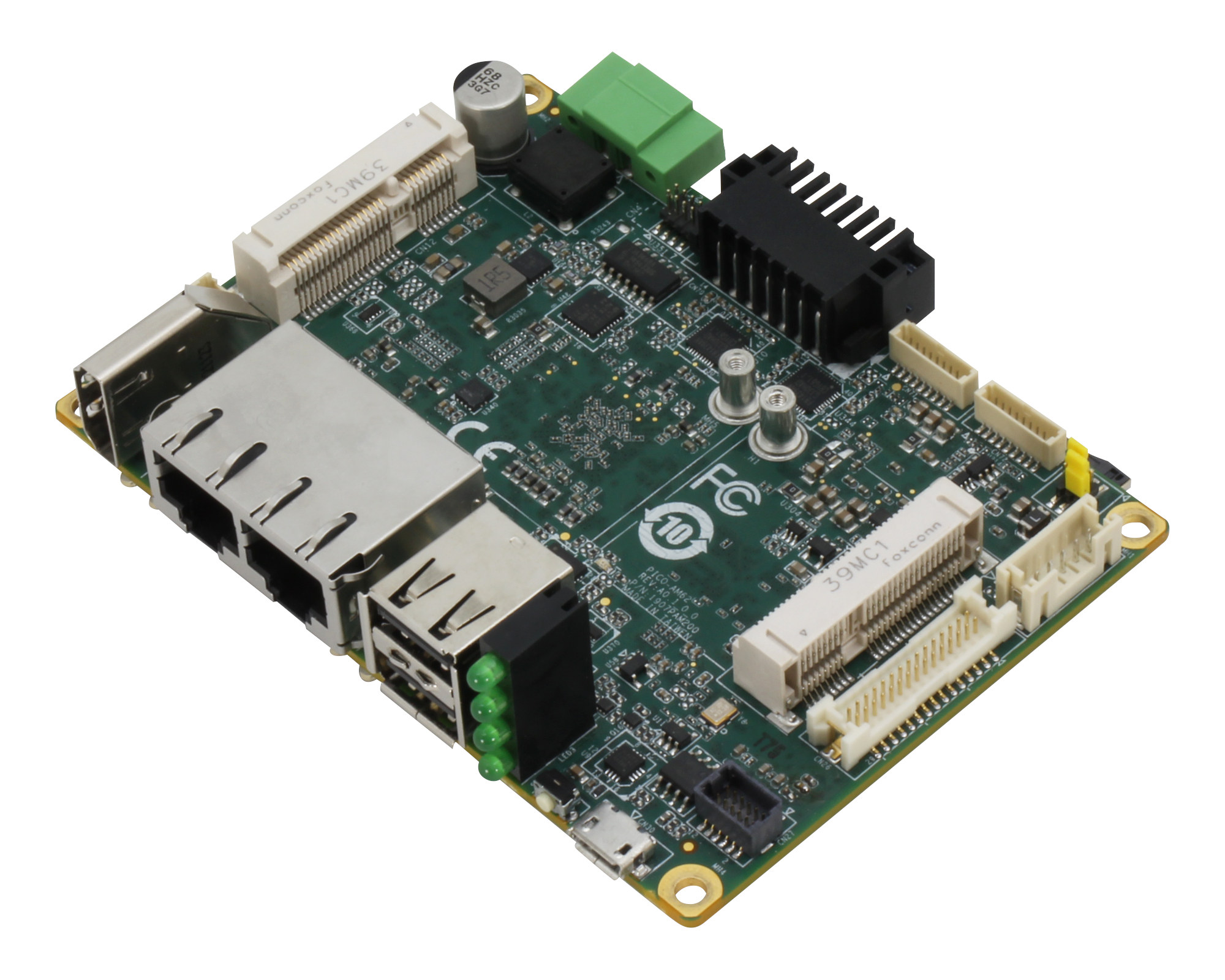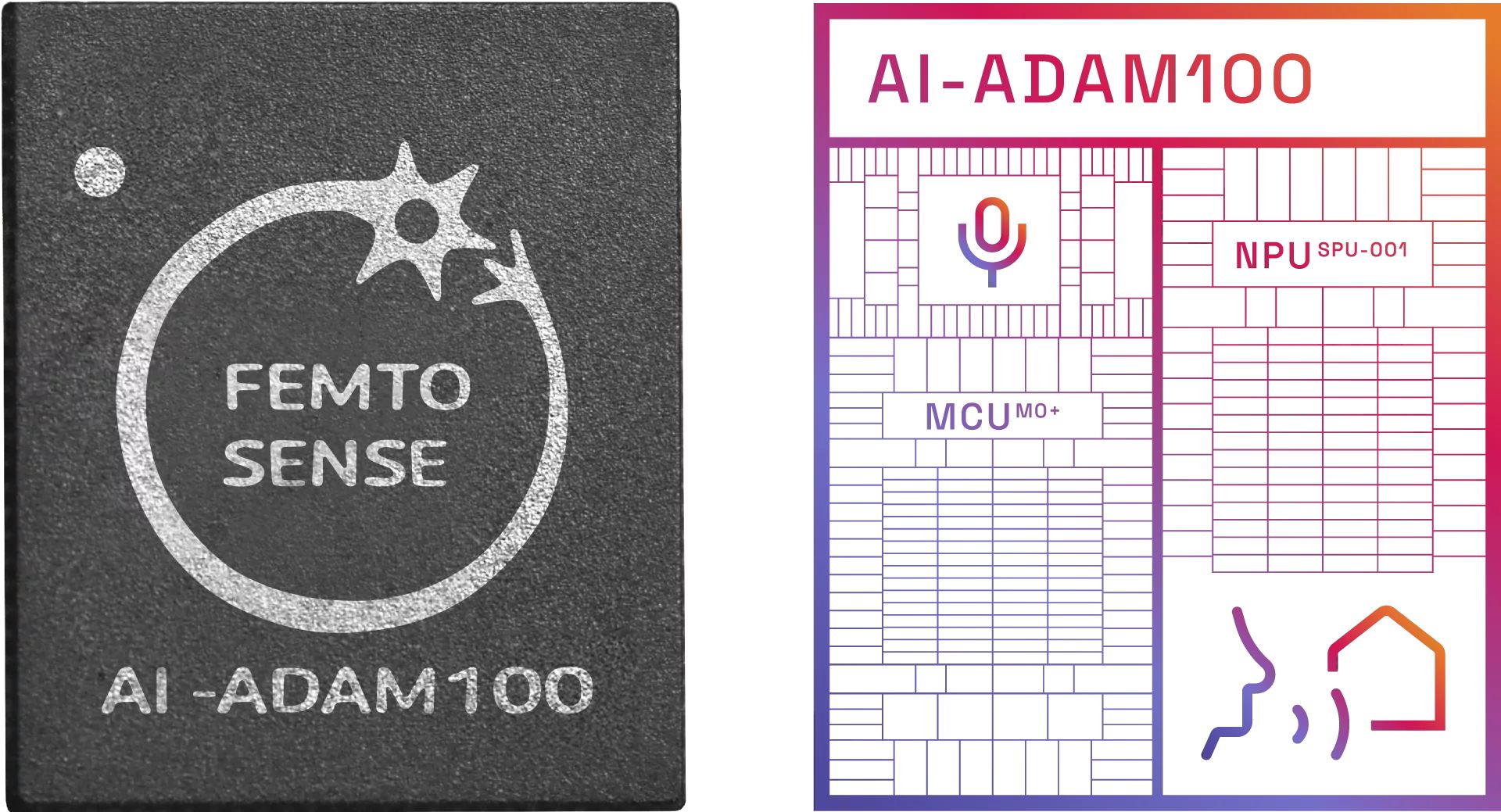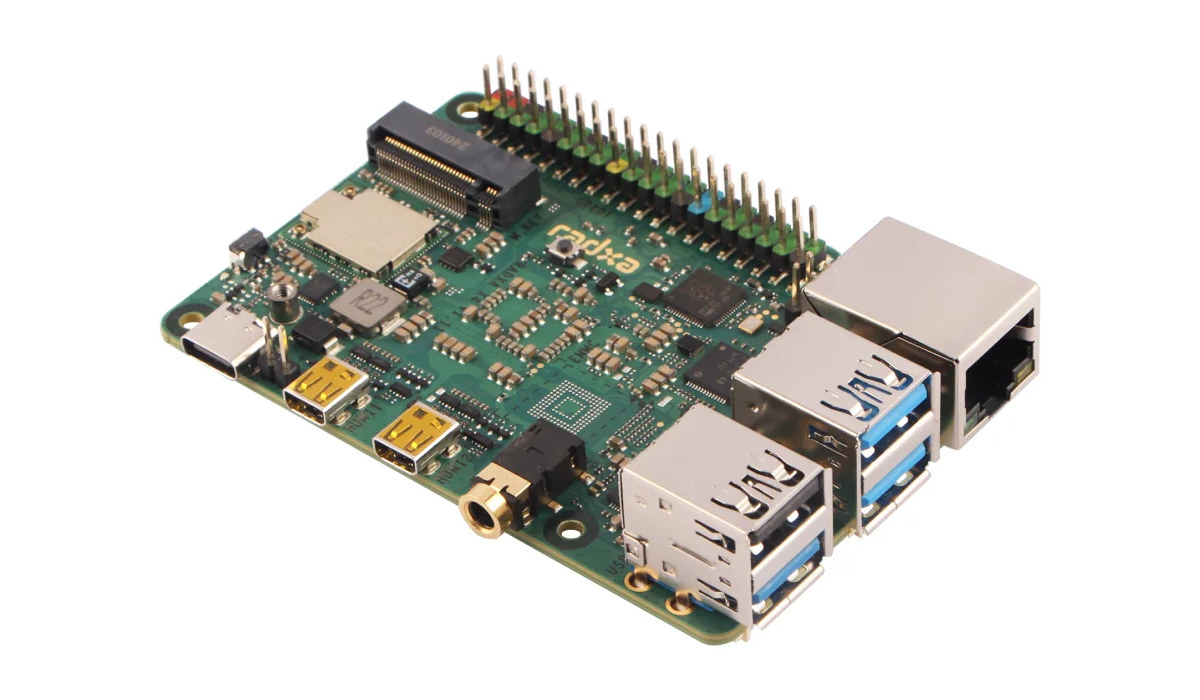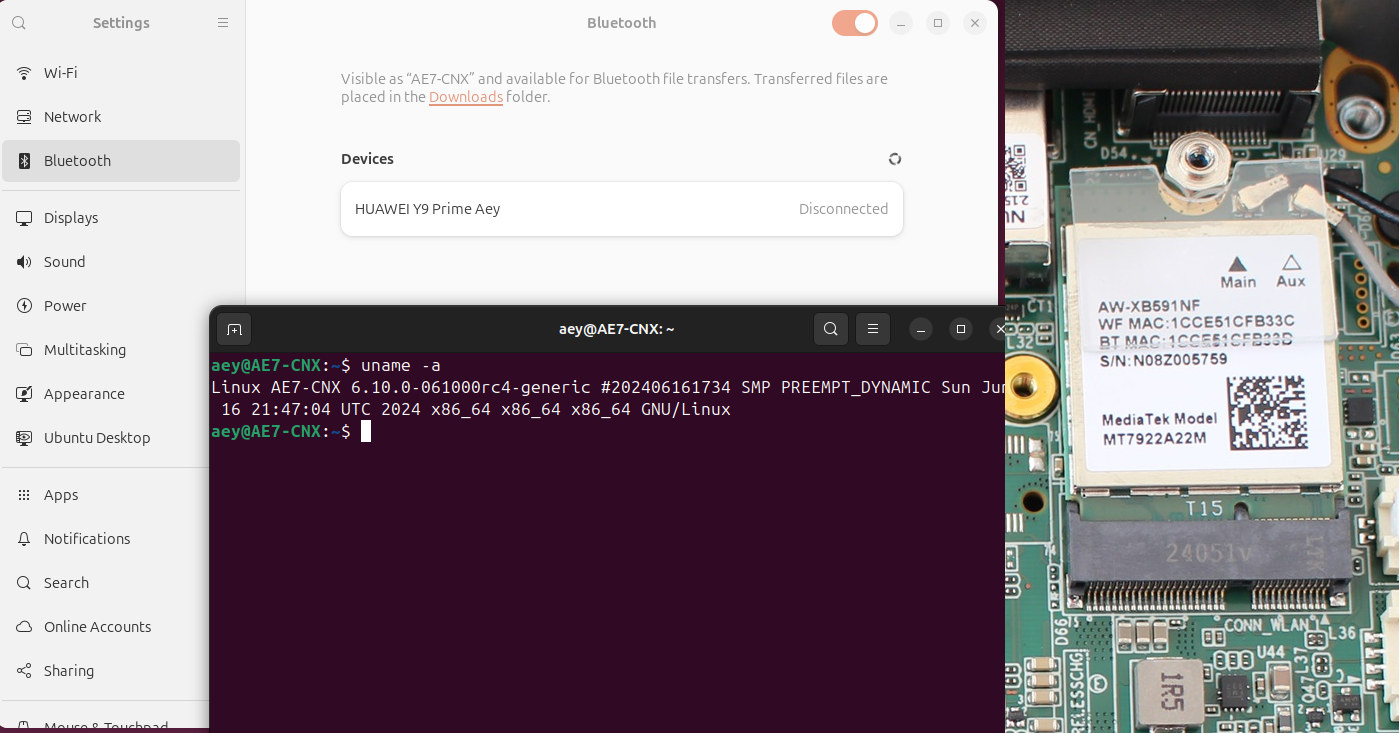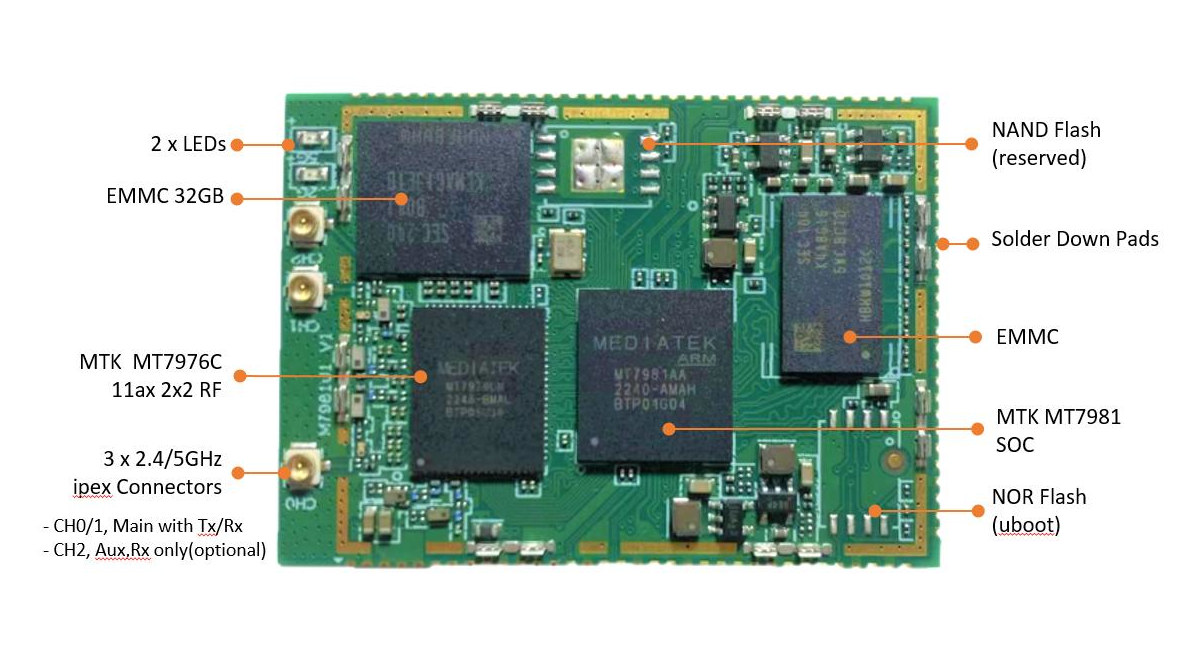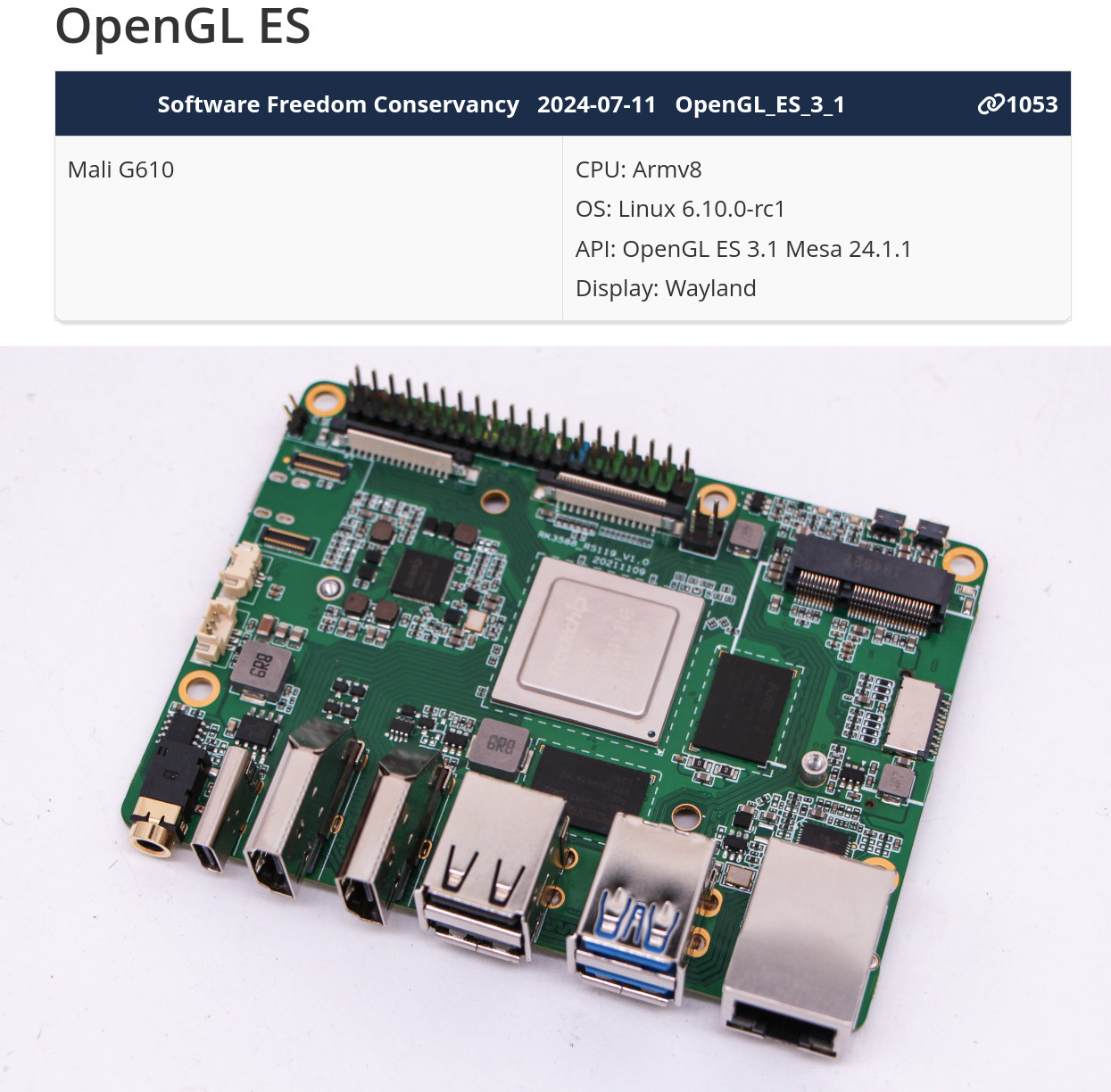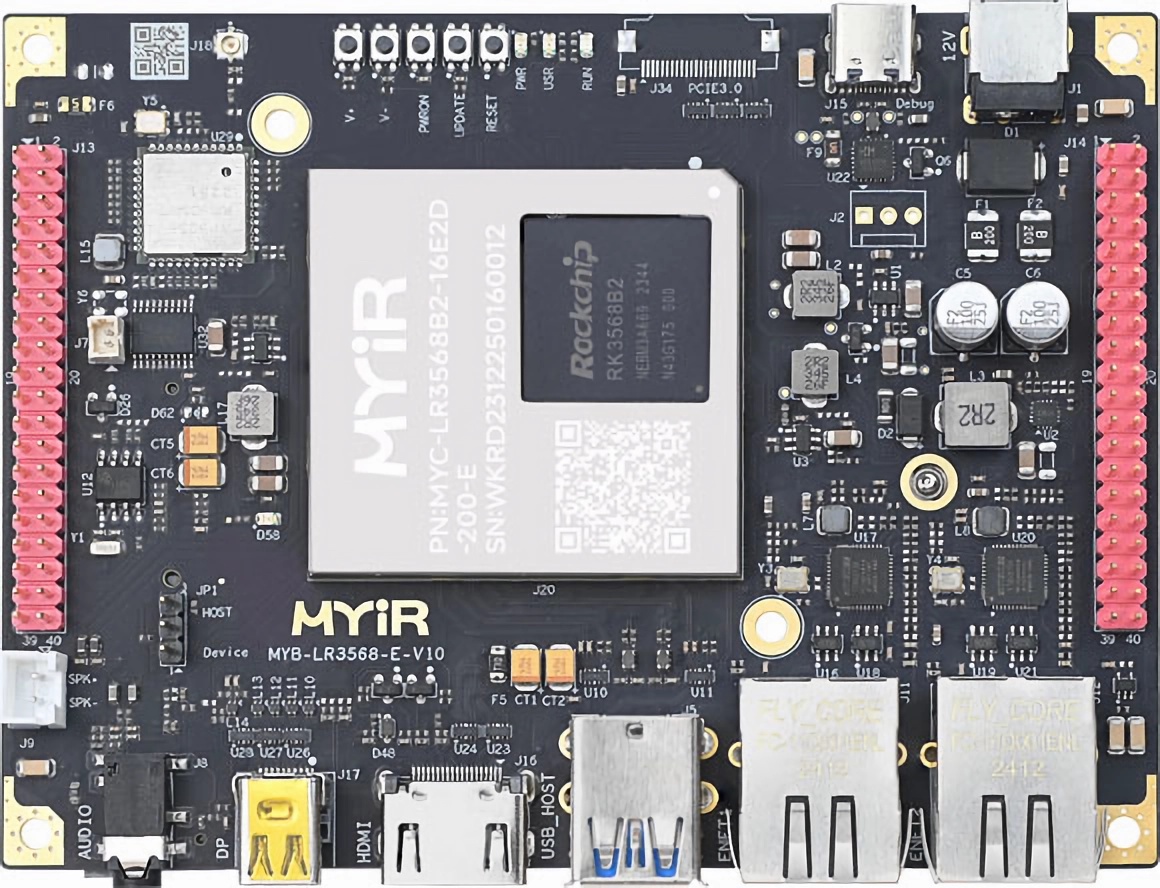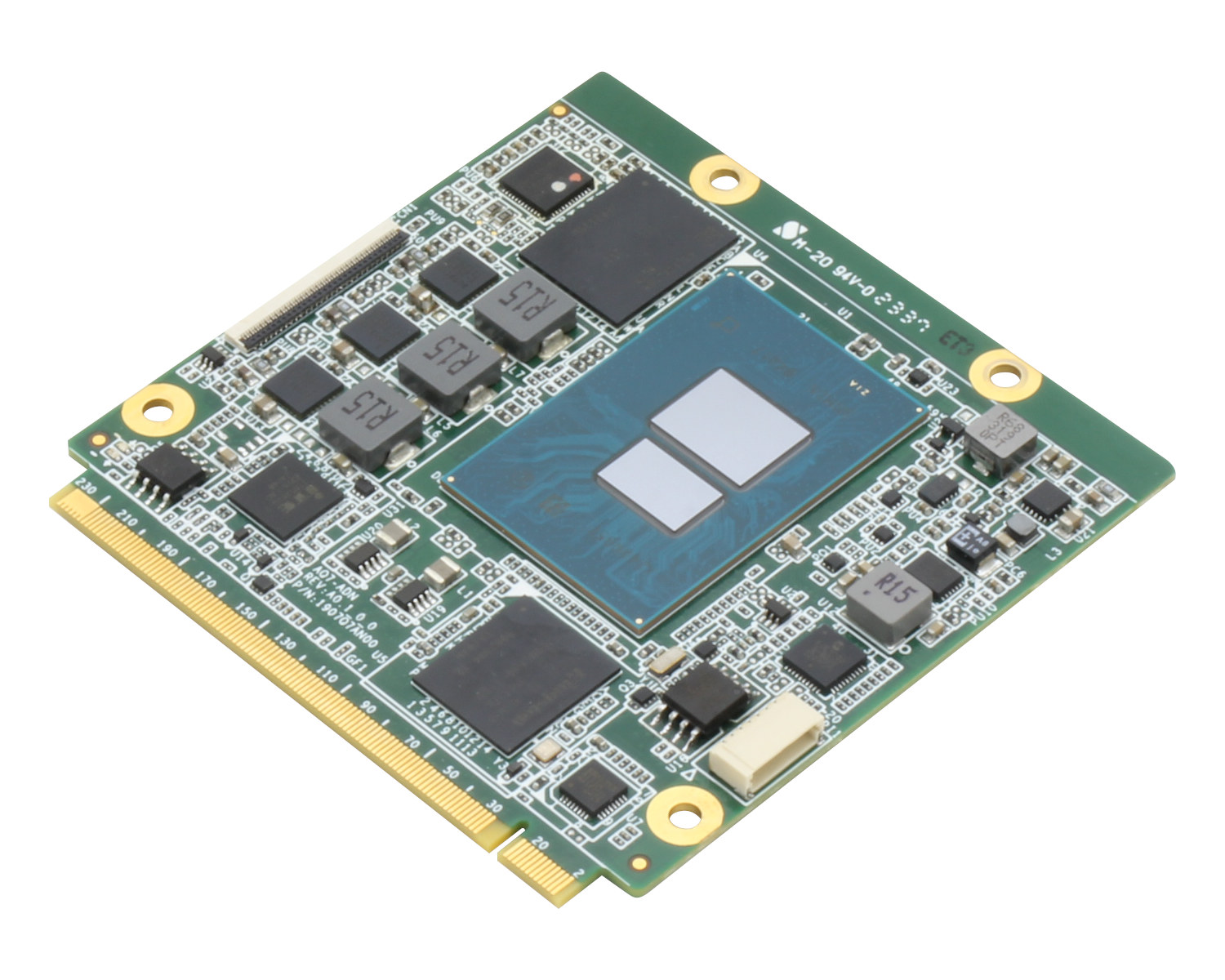AAEON’s PICO-AM62 and SRG-AM62 are respectively a single board computer (SBC) and an industrial IoT gateway powered by Texas Instruments AM6232 or AM6254 Sitara Arm Cortex-A53/M4 SoC, designed to operate within the -40°C to 85°C temperature range, and offered with a 20-year lifespan. The SRG-AM62 gateway simply houses the PICO-AM62 pico-ITX SBC within a metal case so both offer dual gigabit Ethernet, HDMI 1.4 port, and two USB 2.0 as well as communication interfaces such as RS-232/422/485 and CAN Bus. Designed to be operated in industrial settings, the systems support a wide 9V to 36V input voltage range. PICO-AM62 SBC and SRG-AM62 gateway specifications: SoC – Texas Instruments AM623x either AM6232 Sitara with dual-core Arm Cortex-A53 processor @ up to 1.4 GHz, Cortex-M4F real-time core @ 400 MHz, no 3D GPU AM6254 Sitara with quad-core Arm Cortex-A53 processor @ up to 1.4 GHz, Cortex-M4F real-time core @ 400 MHz, Imagination […]
Femtosense introduces the AI-ADAM-100 system-in-package for affordable, efficient AI-based voice processing on the edge
Femtosense’s newest release, the AI-ADAM-100, combines a low-power Arm Cortex M0+ microcontroller from ABOV Semiconductor with the Femtosense Sparse Processing Unit (SPU), an in-house neural processing unit. This combination powers AI voice processing and cleanup capabilities on edge devices. It leverages sparsity techniques to ensure that models can run on edge devices without intensive processing. Sparsity in AI refers to the presence of zeroes or non-zero values in the matrices and tensors used in machine learning models. No computation is required for these zero weights, heavily reducing processing requirements. The Femtosense AI-ADAM-100 aims to bring voice control to various devices such as home appliances, hearing aids, industrial headsets, and consumer earbuds. These appliances can implement voice user interfaces that allow users to talk naturally in their own words. On-device voice cleanup functionality would reduce infrastructure costs and improve the accuracy of the data sent to the cloud. The Femtosense SiP […]
Radxa X4 low-cost, credit card-sized Intel N100 SBC goes for $60 and up
Radxa X4 is a credit card-sized Intel Processor N100 single board computer (SBC) that costs almost the same as a Raspberry Pi 5 with the 4GB RAM model going for about $60 and the 8GB RAM variant around $80. The x86 SBC offers many of the same features as the Raspberry Pi 5 including dual micro HDMI output, four USB 3.2/2.0 ports, Ethernet and WiFi networking, and the 40-pin GPIO header handled through a Raspberry Pi RP2040 microcontroller. Networking is better with 2.5GbE and WiFi 6, M.2 SSD support is built-in and four to eight times faster compared to PCIe HAT for the Pi 5, and the USB 3.2 ports are capable of 10 Gbps speed. So let’s little not too like, and the main downside is the lack of MIPI CSI and DSI connectors for projects requiring those camera and display interfaces. Radxa X4 specifications: SoC – Intel Processor […]
How to easily enable MediaTek MT7922 Bluetooth on Ubuntu 24.04
MediaTek MT7922 WiFi 6 and Bluetooth 5.3 modules have recently been found in several mini PCs, but Bluetooth would not work in Linux due to a lack of drivers. In this post, we’ll show how to easily enable Bluetooth in MediaTek MT7922 modules when running Ubuntu 24.04. We previously noted that Ian Morrisson submitted a patch adding the IDs for the MT7922 module (Azurewave AW-XB591NF) used in recent GEEKOM mini PCs last March. In theory, you could have rebuilt the Linux kernel, but now that Linux 6.10 has been released, it’s much easier since Canonical has made the Linux 6.10 kernel available for Ubuntu, so we only need to install it and problem solved! Ubuntu 24.04 ships with Linux 6.8, we can see a Bluetooth opcode error in the kernel log.
$39 Acelink SM81 MediaTek Filogic 820 WiFi 6 system-on-module runs OpenWrt 23.05 or Debian 11
Acelink SM81 is a compact (50x36mm) system-on-module based on the MediaTek Filogic 820 (MT7981A/B) processor with WiFi 6 and Ethernet connectivity designed for IoT applications such as routers, access points, and gateways. The wireless module ships with up to 1GB DDR4 memory, a 2MB NOR flash for the bootloader, a 32GB eMMC flash for Linux or an optional NAND flash, and exposes various I/Os such as gigabit Ethernet, USB 3.0, PCIe 2.1, UART, and more through castellated holes. Acelink SM81 specifications: SoC (one or the other) MediaTek MT7981AA (Filogic 820) dual-core processor @ 1.3 GHz MediaTek MT7981BA (Filogic 820) dual-core processor @ 1.3 GHz without PCIe interface System Memory – 1GB DDR4 @ 2133 Mbps Storage 2MB NOR flash for bootloader 16GB or 32GB eMMC flash for main OS (OpenWrt) Footprint for NAND flash Wireless Radio Mode – 2.4GHz 2×2 + 5GHz 3×3 MIMO via MT7976CN RF IC Radio Frequency […]
Panthor open-source driver achieves OpenGL ES 3.1 conformance with Arm Mali-G610 GPU (RK3588 SoC)
Collabora has just announced that the Panthor open-source GPU kernel driver for third-generation Arm Valhall GPUs (Arm Mali-G310, Mali-G510, Mali-G610, and Mali-G710) has now achieved OpenGL ES 3.1 conformance with the Arm Mali-G610 GPU found in the Rockchip RK3588 SoC. Just a few days ago, Linux 6.10 was released with “support for Mali CSF-based GPUs found on recent Arm SoCs from Rockchip or Mediatek”, as expected from the earlier article entitled “Panthor open-source driver for Arm Mali-G310, Mali-G510, Mali-G610, and Mali-G710 GPUs to be part of Linux 6.10” published last March. But this did not say anything about the level of support for the Valhall GPU since it’s common for new hardware to be added with minimal support, and OpenGL ES 3.1 compliance means it’s ready for business… Collabora’s announcement explains this was tested on a Radxa Rock 5B single board computer: The conformance tests ran on a Rock5b board […]
RK3568-based MYC-LR3568 system-on-module comes with up to 8GB RAM, 32GB storage for cost-sensitive Edge AI applications
MYIR Tech has announced the release of the Rockchip RK3568-based MYC-LR3568 Edge AI system-on-module (SoM) offered in a compact 381-pin expansion LGA package design. It features up to 8GB LPDDR4 RAM, 32GB eMMC flash storage, a power management integrated circuit, and various connectivity options. The base configuration of the MYC-LR3568 system-on-module offers only 2GB RAM and 16GB storage but the module supports up to 8GB RAM and 32GB eMMC storage. It supports several video codecs, including 4K 60fps H.265/H.264/VP9 decoding and 1080P 60fps H.265/H.264 encoding, for high-quality video playback and recording. The MYC-LR3568 SoM works with Debian and Linux operating systems. It is designed for cost-sensitive industrial applications including but not limited to IoT gateways, NVR storage, industrial control, human-machine interface (HMI), cloud terminals, and facial recognition systems. MYIR Tech’s MYC-LR3568 specifications: SoC – Rockchip RK3568 (B2 or J variant) CPU RK3568B2 – Quad-core processor with four Cortex-A55 cores @ 2.0 […]
AAEON AQ7-ADN – A Qseven 2.1 system-on-module with Intel Alder Lake-N CPU, four PCIe Gen 3 x1 interfaces
AAEON AQ7-ADN is a Qseven 2.1-compliant system-on-module based on Atom Processors x7425E, Intel Processor N, or Intel Core i3-N305 Alder Lake-N processor equipped with up to 8GB LPDDR5x and 64GB of eMMC flash storage. AAEON has already introduced Alder Lake-N COM Express and SMARC modules with the COM-ADNC6 and uCOM-ADN respectively, and the AQ7-ADN adds another system-on-module standard to its list of Alder Lake N-Series modules with a Qseven 2.1 SoM that offers four PCIe Gen x1 interfaces and a SATA storage interface. AAEON AQ7-ADN specifications: Alder Lake N-series SoC (one or the other) Intel Atom x7425E quad-core processor up to 3.4 GHz with 6MB cache, 24EU Intel UHD Graphics @ 1.00 GHz; TDP: 12W Intel Processor N50 dual-core processor up to 3.4 GHz with 6MB cache, 16EU Intel UHD Graphics @ 750 MHz; TDP: 6W Intel Processor N97 quad-core processor up to 3.6 GHz with 6MB cache, 24EU Intel […]


